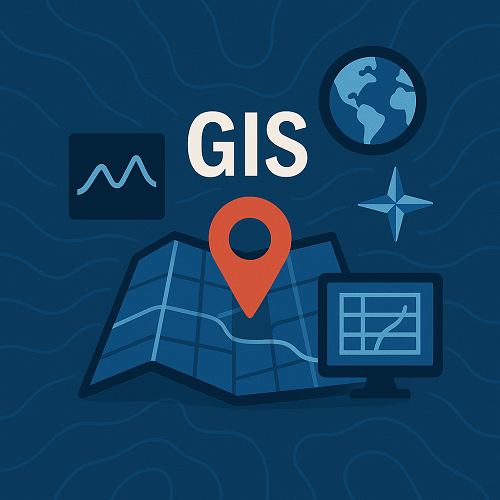As businesses compete to stay ahead in this fast-paced economy, one tool that has proven to be a game-changer is Geographic Information System (GIS) technology. GIS technology allows businesses to analyze, visualize, and even predict patterns related to the location of their customers, suppliers, and competitors. In this article, we will explore the must-know applications of GIS technology that can help businesses dominate their industry and boost their success.
1. Sales and Marketing: GIS technology helps businesses identify the best locations for their sales and marketing efforts. By analyzing the demographics, lifestyle, and purchasing behavior of potential customers, businesses can design targeted campaigns that resonate with them. For instance, a retail store can use GIS technology to identify the best locations to open new branches, while a business-to-business company can identify locations where their potential customers are concentrated.
2. Logistics and Supply Chain Management: GIS technology can also be used to optimize logistics and supply chain operations. By analyzing the location of suppliers, warehouses, and transportation routes, businesses can save on transportation costs and ensure faster delivery times. For example, a business that relies on just-in-time delivery can use GIS technology to identify the most efficient routes and minimize the risk of delays caused by traffic congestion.
3. Site Selection and Planning: Before investing in a new project, businesses need to identify the best location that maximizes their return on investment. GIS technology helps businesses evaluate the feasibility of different locations based on factors such as zoning regulations, environmental impact, and accessibility. For instance, a real estate developer can use GIS technology to identify locations where there is high demand for housing and the potential for high returns on investment.
4. Risk Management: GIS technology helps businesses manage and mitigate risks associated with location-based factors such as natural disasters, crime, and accidents. For example, an insurance company can use GIS technology to estimate the risk of their clients’ properties being affected by natural disasters and design appropriate policies that cover them adequately.
5. Competitive Analysis: GIS technology helps businesses gain a competitive advantage by analyzing their market position vis-à-vis their competitors. By analyzing the location of their competitors, their customer base, and market share, businesses can identify gaps and opportunities that they can exploit. For instance, a coffee chain can use GIS technology to identify locations where there is a high demand for coffee but no competition.
In conclusion, GIS technology is an indispensable tool for businesses that want to dominate their industry. From sales and marketing to logistics and supply chain management, site selection and planning to risk management, and even competitive analysis, GIS technology can help businesses make data-driven decisions that boost their success. By incorporating GIS technology into their business strategy, businesses can gain a competitive edge and achieve their business goals faster.
FAQs:
1. What is GIS technology?
GIS technology is a tool that allows businesses to analyze, visualize, and even predict patterns related to the location of their customers, suppliers, and competitors.
2. How can GIS technology benefit my business?
GIS technology can benefit your business by optimizing sales and marketing strategies, logistics and supply chain operations, site selection and planning, risk management, and competitive analysis.
3. How can GIS technology be used in logistics and supply chain management?
GIS technology can be used to optimize logistics and supply chain operations by analyzing the location of suppliers, warehouses, and transportation routes to save on transportation costs and ensure faster delivery times.
4. Can GIS technology help to identify the best location for my business?
Yes, GIS technology can help to identify the best location for your business by evaluating the feasibility of different locations based on factors such as zoning regulations, environmental impact, and accessibility.
5. How can GIS technology help businesses manage risk?
GIS technology can help businesses manage risk by analyzing location-based factors such as natural disasters, crime, and accidents to estimate the risk of loss associated with different locations.
